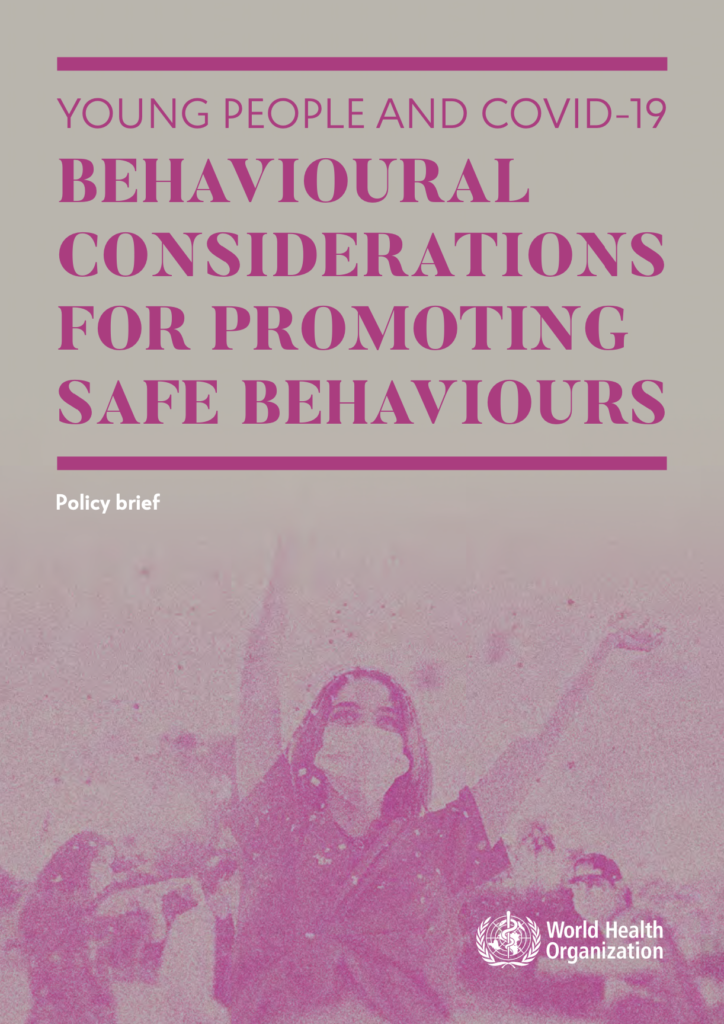Youth are the future of the world. A healthy young population means a better tomorrow. Unfortunately the COVID-19 pandemic has negatively affected young people’s well-being. Leaving them behind.
The recent Policy Forum on Behavioral and Cultural Insights, brought together European Member States to discuss the impact of the pandemic on European youth. It was clear from the forum that youth have faced many struggles during the pandemic with reduced opportunities to learn, work and socialize. All of this has taken a toll on their mental health. Meanwhile, governments and health systems have struggled to meet the needs of young people.
The forum highlighted that special effort needs to be taken to hear the voices of today’s youth. It is crucial that young people participate in decision making processes to ensure that health officials can deliver the best, targeted youth welfare interventions. Examples of ways to hear from young people were shared at the policy forum. These ranged from surveys and social media engagement to direct engagement with marginalized young people and the inclusion of youth groups in the policy process itself.
Since young people behave differently and perceive risks differently interventions targeting them have to be tailored to their needs. There are already several examples from the European Region on involving youth in the pandemic response and addressing their unique needs.
- Belgium and Kazakhstan used social media platforms like Instagram to communicate pandemic measures and receive feedback from young people directly.
- In the Republic of Moldova, young people and youth organizations use an online government platform to make sure their voices are heard at the national level.
- In Sweden, efforts are being made to collaborate with influencers and ambassadors, as well as youth organizations at the national level.
The WHO released a policy brief titled “Young people and COVID-19: Behavioural considerations for promoting safe behaviours”. It provides relevant insights from behavioral evidence and a set of behavioral considerations for those promoting COVID-19 preventive behaviors among young people.
The brief provides several strategies to address risk taking behavior by youth. One successful strategy is communicating information about social norms to shift perception in favor of safer behaviors.
Young people can overestimate how often peers engage in risk-taking; correcting this misperception of norms can influence their behaviour. For example, interventions designed to inform youth that their peers’ actual use of alcohol was lower than they thought led to reductions in alcohol intake,” states The WHO policy brief Young people and COVID-19: Behavioral considerations for promoting safe behaviors.
Young people and COVID-19: Behavioural considerations for promoting safe behaviors – WHO
Dr Hans Henri P. Kluge, WHO Regional Director for Europe emphasized three core priority areas for public health engagement with youth following the pandemic:
- Health officials and governments must invite young people to the table, ensuring they also have a say in which other groups are engaged;
- The health sector must reach out beyond young people in political parties or in medicine and talk to groups across society, particularly to more vulnerable young people; and
- Young people already involved in community groups and campaigns, trying to make a better world must be recognized.

